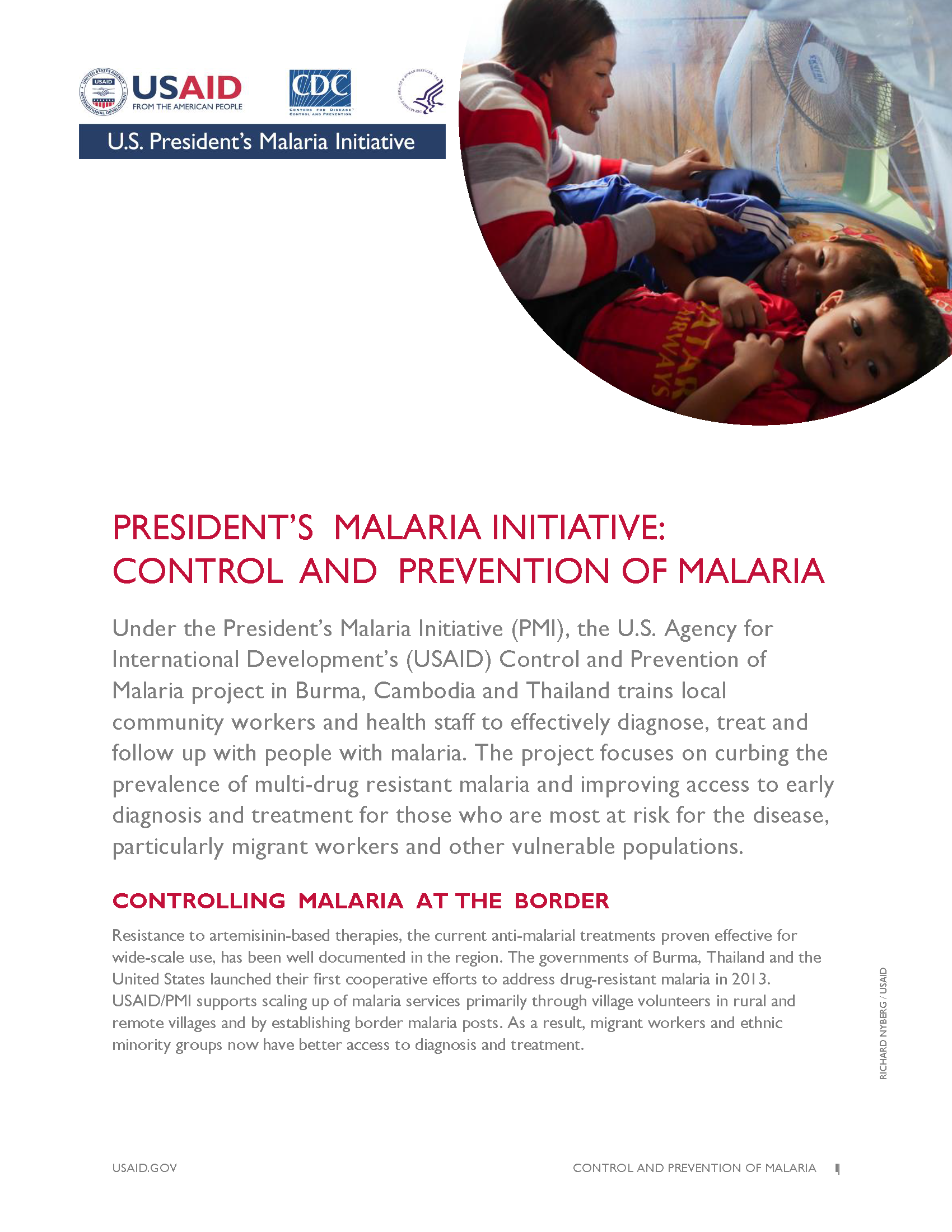Under the President’s Malaria Initiative (PMI), the U.S. Agency for International Development’s (USAID) Control and Prevention of Malaria project in Burma, Cambodia and Thailand trains local community workers and health staff to effectively diagnose, treat and follow up with people with malaria. The project focuses on curbing the prevalence of multi-drug resistant malaria and improving access to early diagnosis and treatment for those who are most at risk for the disease, particularly migrant workers and other vulnerable populations.
CONTROLLING MALARIA AT THE BORDER
Resistance to artemisinin-based therapies, the current anti-malarial treatments proven effective for wide-scale use, has been well documented in the region. The governments of Burma, Thailand and the United States launched their first cooperative efforts to address drug-resistant malaria in 2013. USAID/PMI supports scaling up of malaria services primarily through village volunteers in rural and remote villages and by establishing border malaria posts. As a result, migrant workers and ethnic minority groups now have better access to diagnosis and treatment.
TRAINING LOCAL HEALTHCARE WORKERS
Malaria parasites in the Lower Mekong have increasingly demonstrated resistance to artemisinins and it is now taking two to three times longer to cure patients. Since 2012, USAID/PMI trained more than 1,000 health workers and 1,700 village volunteers to improve the quality of malaria case management by standardizing elements of treatment such as using rapid diagnostic tests and artemisinin-based combination therapies. Other activities have focused on training local health staff on disease surveillance, response, and quality assurance for laboratory diagnostics.
IMPACT AND RESULTS
As of March 2016, through the regional Control and Prevention of Malaria project, health worker volunteers and staff tested more than 367,000 people and provided treatment to approximately 37,700 patients. In addition, the project helped to distribute more than 880,000 insecticide-treated bednets to residents and migrants living or working in malaria endemic areas covered by the project. The project has raised awareness about personal protection measures, such as sleeping under an insecticide-treated bednets, that have gone a long way in helping people avoid contracting the disease.
PARTNERS
The USAID-funded Control and Prevention of Malaria program is implemented by University Research Co., LLC (URC), in partnership with Save the Children International in Burma, and Kenan Institute Asia in Thailand. Having implemented the Malaria Control in Cambodia project (2007-2011), URC is able to scale up lessons learned to Burma and Thailand through the Regional Control and Prevention of Malaria project.
Click here for the pdf version.








Comment
Make a general inquiry or suggest an improvement.